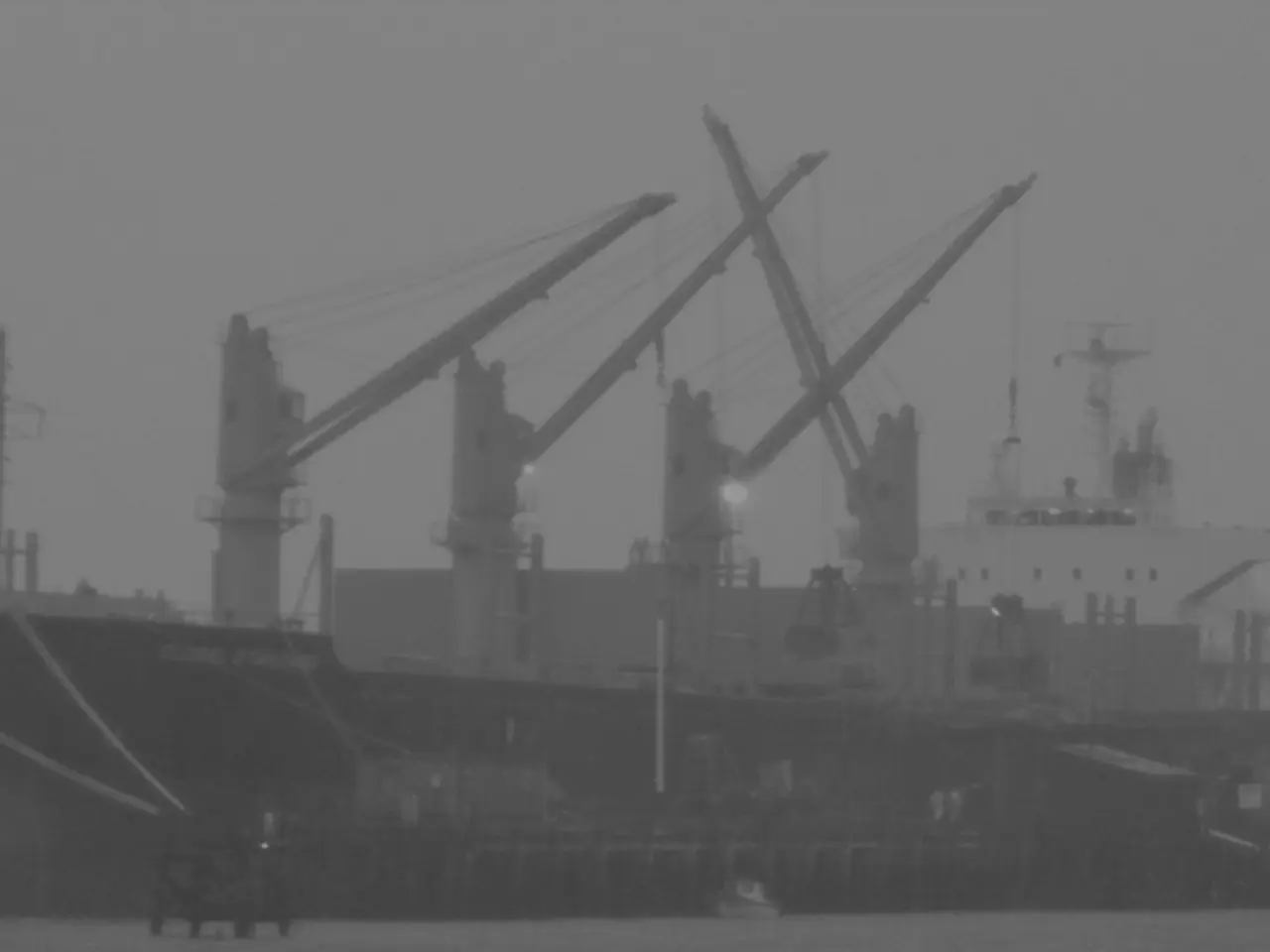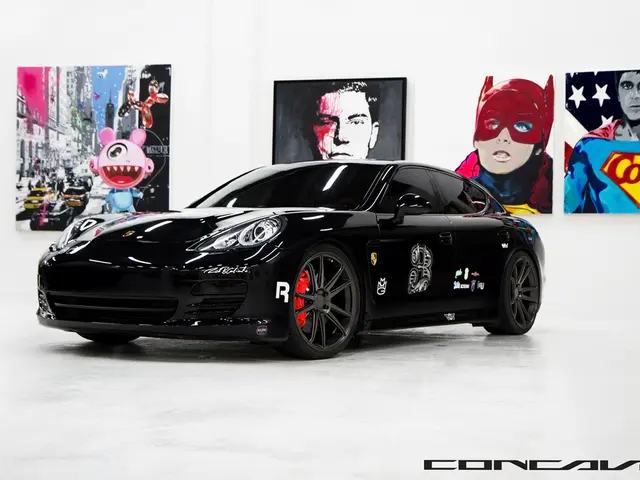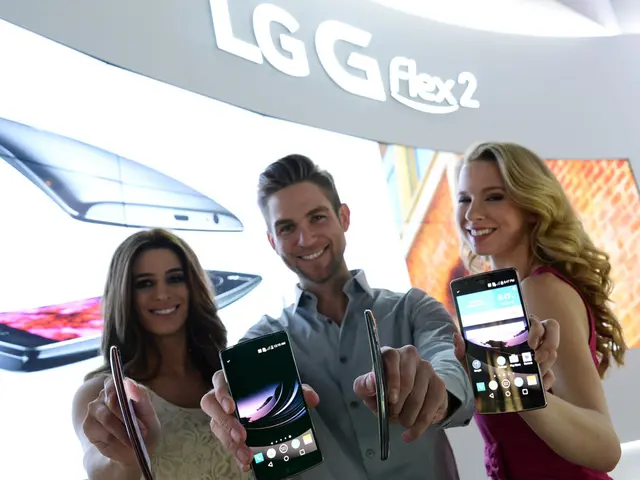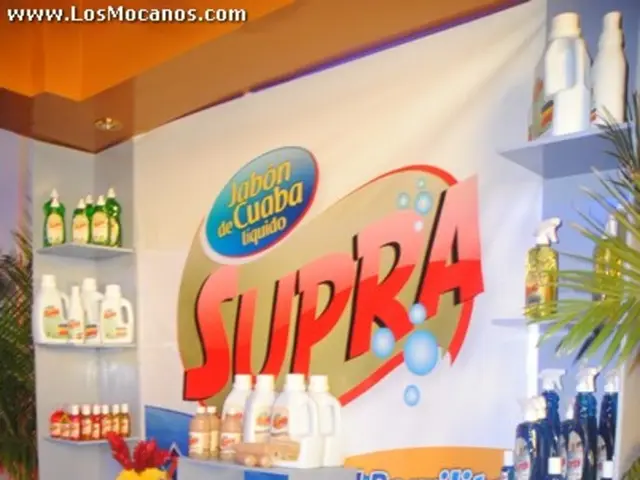U.S. negotiating tactics leverage South Korea's shipbuilding industry, with questionable legal waters surrounding the matter.
HD Hyundai Mipo Dockyard, an affiliate of HD Hyundai, has made a significant stride in the maritime industry with the launch of the world's largest liquefied carbon dioxide (LCO2) carrier. The 22,000 cubic meter vessel, constructed for Capital Clean Energy Carriers, is a testament to HD Hyundai's commitment to carbon neutrality and next-generation technologies [1][3][5].
Measuring 160 meters in length, this innovative ship boasts bi-lobe storage tanks that maintain CO2 at -55 degrees Celsius and five times atmospheric pressure. It also has the capability to carry LPG and ammonia, making it a versatile addition to the maritime fleet. The vessel is being built to Ice Class 1C standard and is expected to be delivered later in 2025 [1][3][5].
HD Hyundai Heavy Industries (HHI) has received approvals from DNV and ABS for the design of larger LCO2 carriers. DNV granted an Approval in Principle (AiP) for a 40,000 cubic meter LCO2 carrier with three cargo holds, while ABS approved a new cargo containment system optimized for a 35,000 cubic meter LCO2 carrier using new cargo tank materials [1][3].
HD Hyundai is positioning itself within the carbon capture and storage (CCS) ecosystem, as demonstrated by its contract with Capital Clean Energy Carriers, a Greek company that ordered four such vessels from HD Hyundai Mipo [1][3][5]. The company is also part of a wider Korean shipbuilding industry shift towards CCS and LCO2 shipping, with an estimated global demand for 2,500 LCO2 carriers by 2050 to support the maritime industry’s carbon emission goals [5].
Other companies in the Korean shipbuilding sector, such as Samsung Heavy Industries, are also collaborating and innovating in related areas like onboard carbon capture systems, further demonstrating an industry-wide strategic pivot towards carbon capture technologies and green shipping solutions [5].
As you navigate through this article, you'll find three audio options (audio_0, audio_1, audio_2) available. The escape key can be used to cancel and close the modal window. An image depicts a render of HD Hyundai Mipo's LCO2 carrier. Please note that the Kool Tiger LNG Tanker, docked at the Freeport LNG facility in Quintana, Texas, is a subject of a separate news article.
The news article is from the JoongAng Ilbo, translated using generative AI and edited by the website staff. While HD Hyundai is involved in discussions for a joint shipbuilding contract, specific details about these discussions with Edison Chouest have not been disclosed.
[1] JoongAng Ilbo. (2022, December 12). HD Hyundai launches world's largest LCO2 carrier. Retrieved from https://joongangdaily.joins.com/2022/12/12/business/20221212_2943017.html
[2] Image: HD Hyundai Mipo's LCO2 carrier render.
[3] JoongAng Ilbo. (2022, December 13). HD Hyundai receives approvals for larger LCO2 carriers. Retrieved from https://joongangdaily.joins.com/2022/12/13/business/20221213_2943155.html
[4] (This section is not provided in the bullet points.)
[5] JoongAng Ilbo. (2022, December 14). Korean shipbuilders shift towards carbon capture and storage technologies. Retrieved from https://joongangdaily.joins.com/2022/12/14/business/20221214_2943212.html
- The government, as well as the business sector, is taking notice of HD Hyundai's advancements in the maritime industry, particularly in the development of the world's largest liquefied carbon dioxide (LCO2) carrier.
- HD Hyundai Heavy Industries, in collaboration with financial institutions, is working on innovative designs for larger LCO2 carriers, with approvals from DNV and ABS for a 40,000 cubic meter and a 35,000 cubic meter LCO2 carrier respectively.
- The Korean shipbuilding industry, including companies like HD Hyundai and Samsung Heavy Industries, is actively participating in the carbon capture and storage (CCS) ecosystem, with a primary focus on LCO2 shipping, in line with global demand estimates for 2,500 such carriers by 2050.
- The defense sector may find potential applications in HD Hyundai's cutting-edge LCO2 carrier technology, given its versatility in carrying not only LCO2 but also liquefied petroleum gas (LPG) and ammonia, making it a flexible addition to the maritime fleet.




